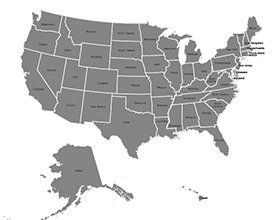March 3, 2025
Learn more about 2025's best diet, building heart-healthy habits, and the benefits of strength training. 2025'S BEST DIET: THE MEDITERRANEAN For the eighth consecutive year, U.S. News & World Report named the Mediterranean diet the world's best overall diet. This diet can help support brain function, promote heart health and regulate blood sugar levels. Research also suggests that this well-balanced eating pattern can help prevent some chronic diseases and increase longevity. Because the Mediterranean diet is nonrestrictive, almost anyone can follow it and adapt it to their personal and cultural food preferences. The winning meal plan emulates how people in the Mediterranean region have traditionally eaten, focusing on whole grains and heart-healthy fats. These foods are encouraged in the diet: • Fruits (e.g., apples, bananas, grapes, melons, oranges, peaches, pears and strawberries) • Vegetables (e.g., artichokes, broccoli, Brussels sprouts, carrots, cucumbers, kale, spinach, onions, spinach and sweet potatoes) • Nuts and seeds (e.g., almonds, cashews, hazelnuts, macadamia nuts, pumpkin seeds, peanut butter, sunflower seeds and walnuts) • Legumes (e.g., beans, chickpeas, lentils, peanuts and peas) • Whole grains (e.g., barley, buckwheat, brown rice, oats and whole-wheat bread and pasta) • Fish and seafood (e.g., crab, mussels, oysters, salmon, sardines, shrimp, trout and tuna) • Herbs and spices (e.g., basil, cinnamon, garlic, mint, nutmeg, rosemary and sage) • Healthy fats (e.g., avocados, avocado oil, extra virgin olive oil and olives) The meal plan also encourages poultry (e.g., chicken, duck and turkey), eggs, cheese and yogurt in moderation. Sweets, red meat and other highly processed foods should be limited. A nonrestrictive healthy eating regimen such as the Mediterranean diet may be easier to follow and stay committed to. After all, you can start building Mediterranean-inspired meals with foods you already love or by incorporating more fruits and vegetables into your meals and snacks. U.S. News & World Report also ranked diets for 21 categories based on health and lifestyle goals, so check out the full results. Talk to your doctor about any diet-related questions. BUILDING HEART-HEALTHY HABITS Heart disease is the leading cause of death in the country for both men and women, accounting for 1 out of every 5 deaths. Cardiovascular disease and the conditions that lead to it can happen at any age. Some types of heart disease include arrhythmia, heart failure, heart attack and stroke. The American Heart Association predicts that roughly 61% of U.S. adults will have some type of cardiovascular disease by 2050. A heart-healthy lifestyle can reduce the risk of heart disease, and small changes can make a difference. Consider these incorporating these practical tips: • Get screened . A heart disease screening checks your blood pressure, cholesterol and blood glucose levels. If you don’t know these numbers, a baseline screening is a starting point for monitoring your health. • Eat healthy. It’s crucial to control portion sizes and consume a balanced diet full of fruits, vegetables, whole grains and protein. Limit fast, fried and processed foods, saturated and trans fats, and sodium. • Be active . It’s important to engage in aerobic activity for at least 150 minutes weekly and muscle-strengthening activities two times per week. Flexibility workouts, such as stretching and balance, support musculoskeletal health and can help you keep up with your exercises. • Avoid or quit smoking . Nicotine raises blood pressure, so quit smoking or vaping. Breathing secondhand smoke also affects your heart. February is American Heart Month, which is a great time to take charge of your heart health and get screened. Your doctor can also provide more information about heart health and warning signs. THE BENEFITS OF STRENGTH TRAINING Strength training, also known as weight lifting or resistance training, is growing as a fitness trend as people recognize its impact on long-term health. The goal is to use your body weight or equipment (e.g., free weights, kettlebells and resistance bands) to build muscle mass and endurance. It’s recommended to incorporate muscle-strengthening exercises at least twice a week, combined with aerobic activity. This type of exercise isn’t just for athletes; anyone can benefit from regular strength training. Think of it as training for everyday life. Strength training allows you to perform daily tasks—such as climbing stairs, lifting children and doing household chores— more easily, which is especially important as you age. Regular strength training may result in: • Increased muscle mass • Stronger, denser bones • Boosted metabolism • Better flexibility and mobility • Reduced risk of injury or falls • Lowered risk of heart disease and diabetes • Elevated mood, self-esteem and brain health Strength training provides several benefits, but start slowly and focus on your form first. As you get more comfortable, you can add more weight or resistance or increase repetitions. If this feels intimidating, online videos, small group classes or trainers can help. Always speak with your health care provider before beginning a new exercise program. This article is intended for informational purposes only and is not intended to be exhaustive, nor should any discussion or opinions be construed as professional advice. Readers should contact a health professional for appropriate advice. © 2025 Zywave, Inc. All rights reserved. Download the PDF copy here.











